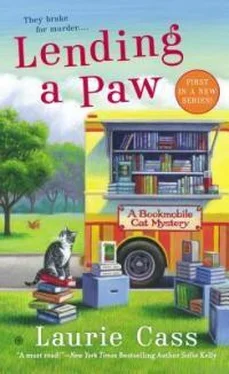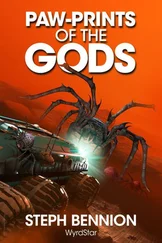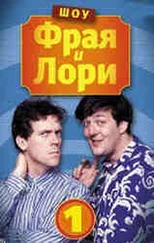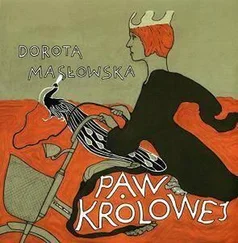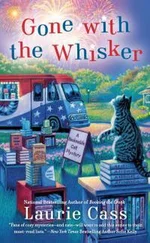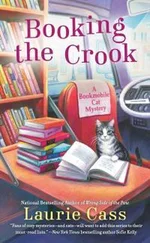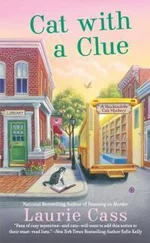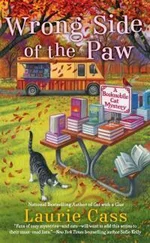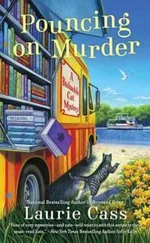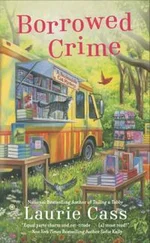Since Skeeter and I were both the same age and were both single, half the marina had been trying to get us together since last summer when he’d first rented a slip. We’d even made a desultory attempt at a date, but there’d been no spark of interest flaring up, no flame of romantic heat, no nothing. We’d ended the evening as we’d begun: friends.
“Hey, Min Tin Tin.” Chris toasted me with a bottle of motor treatment. “What’s doing, girl?”
If I had to make a guess, I’d have said Chris was in his early forties, but he had that whippet-thin body that meant he’d look forty when he was sixty. From his speech patterns, however, you’d think he was twenty.
“Louisa said you were looking for me.” I nodded hellos to Skeeter and Rafe.
“Oh, yeah.” Chris dropped his feet to the concrete floor and half stood to reach for something underneath the counter. “Before I spread any more rumors, I got to find out if they’re true.” He held up the newspaper and stabbed a finger at the article about Stan. “Says here the bookmobile person found old Stan Larabee. Was that you? My money’s on it.”
I stared at the article. Why did Chilson have to have the only newspaper in the area that still ran a weekend edition? Was there really enough news in the county to print a paper six times a week? Once a week would surely be enough.
“Leave her alone, Ballou,” Skeeter said quietly.
Chris stabbed the paper again. “I knew it, I just knew it. Everybody was saying so, right, Rafe?”
“What do you mean, everybody?” I asked.
“You know.” Rafe shrugged. “Everybody.”
I crossed my eyes at him. For a smart man, Rafe could be exceedingly inarticulate when he chose, and outside of his working hours, he typically chose the path of inarticulateness.
“At the bar last night,” Chris said. “Larabee being killed was all anyone talked about. Well, that and who’s going to get all his money.”
Of course Stan’s death was the hot topic. How could it not be? The hometown boy had made good, come home to retire, and was murdered by person or persons unknown. Every occupant of every barstool in town had probably laid claim to knowing Stan and having an opinion on the murder. “Your buddies figure out who killed him?”
Rafe shot me a half grin, but my sarcasm was lost on Chris.
“Could have been a lot of people.” Chris dropped back into the director’s chair. “You better watch out. Killer’s going to be after you, next.”
I snorted. “Really.”
“Well, sure. It’s all over town. Stan was beat up real bad and then shot, right? And you’re the one who found him, so he must have told you who did it before he died. Bound to have.”
“Uh-huh,” I said. “And does everybody also know why the police haven’t arrested the killer?”
“Well, sure, there’re a couple reasons.” Chris’s feet went back up on the cardboard box. “The guy’s in hiding, for one. I mean, who kills somebody and goes to work the next day? And maybe all Stan gave you was a first name and it’ll take some time to figure out which one it is. Some names are real common, you know.”
“Like ‘Chris’?”
“Nah. There aren’t that many . . . hey! You ain’t saying I killed Stan Larabee. No way are you saying that. He didn’t really say a Chris killed him, did he? Hey, Minnie, don’t walk away like that. You got to tell me!”
Out of sight of Chris, I winked at Rafe and Skeeter. “It’ll take some time to figure it out,” I said, deadpan. “You might want to come up with an alibi.”
“An alibi? For when? Minnie . . . hey, Minnie!”
But I was already out the door.
• • •
The rest of Sunday I spent taking care of the mundane details of life. Balanced the checkbook, hauled a pillowcase full of dirty clothes over to the marina’s coin laundry, cleaned the kitchen, and wiped down the houseboat’s many railings. Eddie followed me around, criticizing my efforts as only a cat is able to do. His unwavering stare clearly meant That’s as clean as you can get it? Please.
“If you think you can do better, go ahead,” I told him.
He sat down and licked his chest.
I popped my cleaning rag in his direction, but he didn’t flinch. “Why is it that I clean the whole place and get nothing but grief, but the only chore you have is cleaning yourself and if I comment on that, I get ignored?”
Since the answer to that was obvious— I’m a cat —I didn’t expect a response. And that’s exactly what I got.
I made the standard Sunday call to my mom and dad, stumbling a little over Mom’s question of “Did anything fun and exciting happen to you this week?” but recovered quickly enough that she didn’t sound suspicious when I said the guy who’d donated the money for the bookmobile was dead.
“Oh, Minerva, I’m so sorry. Did you send a note to his wife? He was elderly, as I recall. Cancer, was it? So many people get cancer these days—it’s all this plastic, I just know it. The other day I was reading about this woman who—”
From long experience, I knew the only way to get a word in edgewise was to interrupt. “It wasn’t cancer, Mom.”
“It wasn’t? Are you sure?”
“Absolutely.” The word “murder” hovered on my lips, but I brushed it away because I knew what would happen if I said it out loud. Mom would say, “Minerva Joy, are you sure you’re all right?” and escalate rapidly to “You’re not fine, I can hear it in your voice. Bob? Get the luggage, we’re driving up to Chilson right now.”
After they got here, it would take me days to reassure my mother that, yes, I was fine, that, no, I didn’t need therapy, and that I wasn’t going to fall on their necks weeping with anxiety and sorrow and loss and beg to be taken home with them for an extended stay.
So I didn’t say that Stan had been murdered. I dealt with the guilt by vowing that I’d tell Dad all about it. And I would. One of these days.
“Just because he didn’t have cancer,” Mom said now, “is no reason not to stay away from pesticides. Speaking of toxic chemicals, how is Kristen doing with getting organic pork?”
The conversation stayed permanently diverted. The call came to a close with Mom’s typical “I worry about you, honey. Are you eating enough vegetables? And are you still writing the notes? Please tell me you are.”
I reassured her on both counts. As soon as we said good-bye, I made a quick call to Aunt Frances and asked her not to tell her sister-in-law and her brother, aka my dad, anything about the end of Friday’s bookmobile trip. Since Aunt Frances had known my mother longer than I had, it didn’t take much persuading.
Somehow, it was inevitable that Kristen would call when I was on the phone. I picked up her message: “Sorry I didn’t call earlier, had to take a fast trip down to Traverse to test a new cheese. Stop by tonight, okay? See ya!”
I stowed my cell phone in my purse, patted a sleeping Eddie on the head, scrawled a note on the whiteboard, and headed out.
• • •
The name of Kristen’s restaurant, Three Seasons, was a direct result of her vow to specialize in serving locally grown foods. When she was working up her business plan, she decided to draw up sample menus from each season. Spring was full of greens, asparagus, lamb, and fish. Summer ranged from cherries to corn to peaches to tomatoes to pork and fish. Fall was apples and squash and potatoes, beef, and fish. It was when she started work on the winter menus that she ran into problems.
“I can’t serve frozen vegetables!” She’d thrown her arms in the air, making her tall self even taller. “What am I going to do?”
We’d been at the sideboard in Aunt Frances’s dining room, our backs to a winterscape of white lawns and naked trees, our fronts facing Kristen’s pages and pages of spread-out scribbles. “Shut down in the winter,” I said. “Go somewhere warm. You don’t like snow that much, anyway.”
Читать дальше
